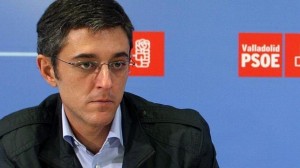
Close to 18 months after its catastrophic general election defeat, the Socialist Party remains further away from power than ever. Opinion polls have it trailing behind a Popular Party that has pushed through unprecedented austerity measures that only seem to deepen the recession, while Prime Minister Mariano Rajoy, who has broken every electoral pledge he made, now admits that there will be no improvement in the economy until at least 2016. Unemployment continues to rise, and the health and education systems are being dismantled before our eyes. And that’s without going into the Bárcenas corruption allegations.
The ideal conditions, surely, for the Socialist Party to launch a sustained counter-attack and rally the ranks of the discontented and dispossessed?
But as the opinion polls show, voters have little faith in party leader Alfredo Pérez Rubalcaba, the man who presided over that catastrophic electoral defeat, but who has promised to lead the Socialists through the next elections: European; regional; and in 2015, general.
Last year, Rubalcaba narrowly defeated the main contender for the leadership, former Defence Minister Carme Chacón, winning by just 22 votes out of 950. The problem with Rubalcaba, and Chacón, is that in voters’ minds they are inextricably linked to Zapatero and his disastrous handling of the early years of the crisis.
The idea was that Rubalcaba would hold the party together through the wilderness years, while a new leader emerged.
Enter Eduardo Madina, the Socialist Party’s 37-year-old leader of its parliamentary group.
In late April, Madina returned to Congress following an operation on his left leg, which was partially amputated in a 2002 ETA car bomb attack, prompting much media comment that he might be preparing a leadership bid.
A year ago, at the party’s conference in Seville, Madina flatly denied that he was interested in the top job; now he is saying that he’s “thinking about it.”
Sources close to Madina say that he has considerable support within the upper echelons of the party, as well as backing among grassroots socialists, who see in him the new face of the party, able to put forward a credible political program.
Last September, a survey of 1,162 Socialist Party activists found that 78 percent were unhappy with the party’s opposition performance and 66 percent thought the party was failing to defend the interest of Spaniards. They want to see the party play a more active role in leading opposition to the government’s policies, which so far has produced two general strikes and widespread and regular protest marches.
Activists also indicated a desire for a new leadership, with the most popular candidate, albeit with only 21 percent backing, Eduardo Madina.
Too nice to lead?
But Madina has been accused of lacking the killer instinct required of a party leader, and that he would fare badly in a contest with Chacón or his former mentor, Basque party leader Patxi López, who has not ruled out standing for the leadership.
Married with a five-year-old son, last year Madina was included among 192 Young Global Leaders at the World Economic Forum in Davos, although he immediately ruled out any ambitions to lead his party.
He has put forward ideas for renovating the Socialist Party: the need for root-and-branch change in the way the party works, with greater transparency and a voice for grassroots activists in determining electoral programs. At the same time, he has made soothing noises about the need to understand how the markets work.
But at the end of the day, he faces the same restrictions as Rubalcaba and the shadow cabinet: he is in no position to criticise the government and its austerity policies; after all, it was Zapatero who capitulated to Brussels, reneging on his election promises.
With more than a quarter of the workforce unemployed and an ever-worsening recession, what Spaniards want to hear from their politicians is what they are going to do about the economy, and so far, Madina seems to have little to say on the matter. He may choose to wait out this particular leadership contest, and depending on the outcome of the general elections, and the performance of the economy, launch his bid for power post-2015.
New blood is definitely needed in the PSOE.The rise of smaller parties at the expense of both PSOE and PP is evidence of that.